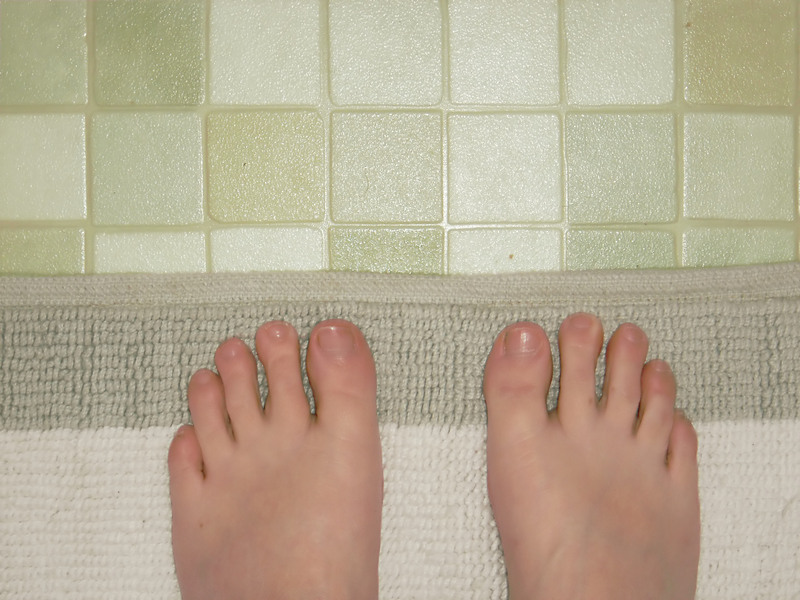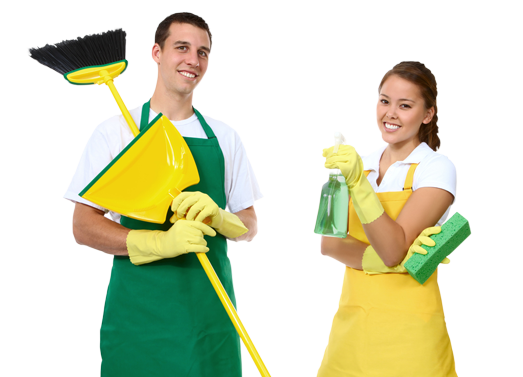Your Go-To Guide: End of Tenancy House Cleaning for Tenants
Posted on 23/08/2025
Your Go-To Guide: End of Tenancy House Cleaning for Tenants
Are you moving out soon? If so, mastering end of tenancy house cleaning can make all the difference between a smooth transition and unexpected headaches. Whether you are renting for the first time or have had numerous tenancies, a thorough cleaning is essential for making a lasting impression and securing your full deposit. In this definitive guide, we cover the ins and outs of end of lease cleaning--so you'll be prepared, stay organised, and avoid any costly mistakes.
Why End of Tenancy Cleaning Matters
When you reach the end of your tenancy, your landlord or letting agent will inspect the property with a keen eye. The level of cleanliness often determines whether you get your entire security deposit back--or potentially face deductions for additional cleaning. A thorough move-out cleaning not only upholds your rental agreement but also leaves a fresh slate for incoming tenants.
Benefits of Professional Post-Tenancy Cleaning
- Maximizes Chance of Full Deposit Return: Proper cleaning addresses areas landlords scrutinize most.
- Reduces Disputes: Well-documented, comprehensive cleaning avoids post-handover disagreements.
- Fulfills Lease Obligations: Most contracts stipulate the property must be as clean as when the tenancy began.
- Positive References for Future Rentals: Leaving the property spotless helps ensure good feedback from landlords or agents.

What Does End of Tenancy House Cleaning Involve?
End of tenancy cleaning, also called move out cleaning or end-of-lease cleaning, goes far beyond standard weekly or seasonal touches. It is a top-to-bottom deep clean, usually completed after the property is emptied of personal belongings. Here are the main aspects:
- Comprehensive Cleaning: All rooms, appliances, fixtures, fittings, and hard-to-reach spots.
- Stain & Spot Removal: Targeted removal of marks on walls, carpets, and upholstery if possible.
- Degreasing & Descaling: Special attention to kitchen appliances and bathroom limescale or mould.
- Odour Elimination: Ensures any lingering smells are neutralised prior to inspection.
End of Tenancy Cleaning Checklist
For optimal end of tenancy house cleaning results, working from a well-structured checklist is key. Here is a detailed room-by-room breakdown to help you deliver a home that impresses your landlord or letting agent.
Kitchen Cleaning Checklist
- Wipe and polish cupboards (inside and out)
- Degrease and clean oven, hob, cooker hood, and extractor fans
- Sanitize sinks and taps; remove limescale
- Clean inside and behind fridge and freezer; defrost freezer
- Wash and disinfect appliances (microwave, dishwasher, kettle, toaster)
- Empty bins and wipe surfaces
- Scrub tiles and remove mould or stains
- Mop and sweep floors
- Clean walls, doors, light fittings, and switches
Bathroom Cleaning Checklist
- Remove limescale from shower, taps, and tiles
- Disinfect and clean toilet, bidet, sinks, and bathtubs
- Wash and shine all glass, mirrors, and shower screens
- Polish metal fixtures
- Wipe down bathroom cabinets and shelves
- Mop and disinfect floors
- Clean ventilation fans and extractor
Living Areas & Bedrooms
- Vacuum and deep clean carpets, rugs, and upholstery
- Dust and wipe skirting boards, doors, handles, and frames
- Polish all furniture (wardrobes, drawers, desks, tables, chairs)
- Clean internal windows, window sills, and ledges
- Remove cobwebs and dust from ceilings and corners
- Wipe all light switches, fittings, and sockets
- Empty and wipe wardrobes and cupboards
- Sweep, vacuum, and/or mop floors
Other Vital Areas
- Empty, clean, and disinfect bins
- Remove marks and stains from walls (where possible)
- Clean radiators, heaters, and vents
- Wipe down banisters, stairs, and railings
- Polish mirrors, glass doors, and picture frames
DIY vs. Professional End of Tenancy Cleaning: Pros and Cons
Choosing whether to undertake the end of tenancy cleaning yourself or hire professionals is a crucial decision. Consider your budget, available time, and the quality you want to achieve.
DIY End of Tenancy Cleaning
- Pros: Saves money; flexible schedule; hands-on control over the cleaning quality.
- Cons: Time-consuming; easy to miss hidden dirt and limescale; may lack industrial-grade products or tools.
Professional End of Tenancy Cleaners
- Pros: Fast, thorough, and often guaranteed clean; uses commercial-grade products; professional attention to detail.
- Cons: Higher cost; must book in advance; still requires tenants to prep the space (empty rooms, clear surfaces).
Tip: If you're confident in your cleaning abilities and have the time, a dedicated DIY job saves money. However, most letting agents recommend or even require a receipt for professional end of tenancy cleaning--especially for furnished or high-value properties.
How to Prepare for End of Tenancy Cleaning
Preparation is half the battle. Here's how to set yourself up for stress-free end of rental cleaning:
- Check Your Contract: Review your tenancy agreement's cleaning stipulations--some specify carpet, oven, or window cleaning by professionals.
- Schedule Enough Time: Cleaning an entire house or flat can take a full day or more. Plan accordingly, especially if booking a cleaning company.
- Remove Belongings: Clean only once the property is empty. Move all personal items before starting.
- Inspect for Repairs: Address any maintenance issues (i.e. holes, cracks, broken appliances) before cleaning day.
- Gather Cleaning Supplies: Acquire quality supplies--multi-surface cleaners, descalers, degreasers, microfiber cloths, mops, vacuums, and gloves.
Pro Tip:
Create a cleaning schedule that moves systematically from one room to the next. This ensures you don't miss hidden areas and helps you pace your cleaning day without feeling overwhelmed.
End of Tenancy Cleaning: How to Do It Right
Follow these practical steps for optimal house cleaning at tenancy end:
- Start High, Finish Low: Clean ceiling corners and light fittings first, gradually working your way down to floors.
- Dust and Vacuum: Use a microfiber cloth or duster for hard surfaces, then vacuum thoroughly.
- Focus on Details: Pay special attention to door handles, switches, curtain rails, radiator tops, and tile grout.
- Tackle Appliances: Remove all trays, racks, and shelves for individual cleaning; use oven degreaser as needed.
- Descale and Disinfect: Use limescale remover for taps, shower heads, and glass panels; disinfect surfaces vigorously--especially in bathrooms and kitchens.
- Carpets and Upholstery: Rent or use a shampoo machine, or call a specialist for stains or animal odours.
- Check External Areas: If you have a garden, balcony, patio, or bins, tidy and clean these as well.
Document your work at each stage with clear photos. These serve as proof of the end of lease house cleaning standard you achieved for future disputes.
Common Mistakes Tenants Make (And How to Avoid Them)
Despite best efforts, many tenants lose parts of their deposit due to overlooked details. Avoid these classic mistakes:
- Missing Appliances: Don't forget the top, inside, and behind the oven, fridge, and washing machine.
- Skipping Hard-to-Reach Areas: Clean under beds, behind radiators, on top of cupboards, and in light fixtures.
- Ignoring Wall Marks: Most walls benefit from a gentle wipe; even minor scuffs can result in deductions.
- Overlooking Windows: Clean all glass--inside, sills, and handles; some contracts require exterior window cleaning as well.
- Leaving Personal Items: Empty every storage area; anything left counts as rubbish and may incur removal fees.
- Forgetting to Ventilate: Air out the property after cleaning to eliminate chemical smells.
Frequently Asked Questions: End of Tenancy House Cleaning for Tenants
How clean should a rental property be at the end of tenancy?
It should be as clean as when you moved in--ideally, spotless. Most tenancy agreements clearly state this requirement. Compare your current state to your inventory or check-in photos for reference.
What if I can't reach a professional cleaner before moving out?
Document your own cleaning efforts with dated photos and receipts for cleaning products or equipment hire. Most reputable professional end of tenancy cleaning companies offer next-day or emergency services if you're in a rush.
Can a landlord deduct from my deposit for cleaning?
Yes, but only if they can evidence that the property is not as clean as stipulated by your tenancy agreement or inventory check-in report.
Do I need to clean the garden, garage, or patio?
Yes, if these are part of your tenancy. Tidy, mow, sweep, and remove rubbish from any private external space.
Are carpets and upholstery cleaning always required?
Not always, but often strongly recommended, especially with pets, children, or heavy use. Some contracts demand professional steam cleaning with certification.

Top Tips for a Stress-Free Move and a Spotless Clean
- Start Early: Don't leave cleaning for moving day! Clean as you pack to make the workload more manageable.
- Use the Right Products: Specific cleaners for oven, limescale, and stains yield professional results.
- Leave Time for Inspection: Schedule a final walk-through with your landlord before official handover.
- Consider a "Sparkle Clean": After all big cleaning jobs, do a quick final wipedown just before handing back keys.
Conclusion
End of tenancy house cleaning can seem overwhelming, but it's entirely manageable with the right approach, planning, and attention to detail. Whether you clean it yourself or call in the experts, meeting the expectations set by your contract ensures you leave your old home on good terms and start your new chapter with your deposit in hand.
Remember: a professional end of lease cleaning is an investment in your rental history. Take the time now, and you'll save money, reduce stress, and uphold your reputation with landlords for years to come.
Ready to ace your handover? Use this guide to guarantee an easy exit and get that deposit back, no questions asked!




